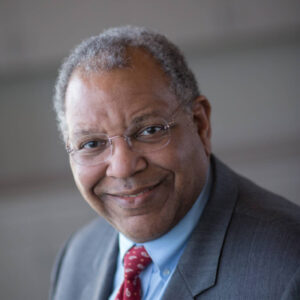In a succession of high-powered day jobs, Joseph V. Simone shaped modern oncology. Then, presumably at night, Joe did a little writing. “Simone’s Maxims” is his chef-d’œuvre.


Photo courtesy of St. Jude Children’s Research Hospital.
Joe died on Jan. 21. He had dementia and COVID-19.
To celebrate Joe’s life, his family allowed The Cancer Letter and the Cancer History Project to make his often-quoted book, “Simone’s Maxims,” available in electronic form free of charge. The book continues to be available in paperback from Editorial Rx Press.
Where is it written that a book’s heft is a surrogate for its significance?
Consider some slim literary gems:
Strunk and White’s “The Elements of Style” is indispensable for anyone who cares to write well.
Frankl’s “Man Search for Meaning” is required reading for those who seek to make sense of things that don’t.
“Simone’s Maxims” is a book so fundamental to academic oncology that we don’t know when we are stealing Joe’s lines.
Here are three of Joe’s most famous maxims:
Institutions don’t love you back.
Leadership does matter.
Contrary to the laws of physics in academic institutions, crap flows uphill.


Interestingly, the pearl most frequently attributed to Joe—“If you’ve seen one cancer center, you’ve seen one cancer center”—doesn’t appear in the “Simone’s Maxims.” Both of us, as well as many others in oncology, have heard Joe say it, but this doesn’t address the question of authorship.
In this little book, it’s entertaining to watch Joe’s hidden dialogue with another composer of maxims—Machiavelli. You might say Joe puts Machiavelli on his head and gives him a good spin. Machiavelli’s advice, contained in another notable short book, is to negate the moral core. Well, the moral core happens to be what Joe is all about.
Joe’s message: institutions are amoral and focused on self-perpetuation, but if you are clever, you can direct them to serve the good of mankind, and this, dear reader, is how it’s done…
Few people under the age of 60 have direct knowledge of the first, epic chapter of Joe’s career, when he led the battle against childhood leukemia. Most of us know him as the visionary of practice guidelines through National Comprehensive Cancer Network, the institution he helped create, and defining value through the Quality Oncology Practice Initiative (QOPI) of the American Society of Clinical Oncology.
Alas, with Joe gone, we have lost the opportunity to ask him to explain whether there is a difference between an expert-based guideline and a maxim. We’ve been thinking about this since Jan. 21, and no distinction has revealed itself.
Joe has been updating the maxims for decades. We are aware of three published iterations: the maxims were first published in Clinical Cancer Research in 1999, the first version of the little book was published in 2004, and the latest version in 2012.
Enough said. Click here to get a copy of “Simone’s Maxims Updated and Expanded: Understanding Today’s Academic Medical Centers.”
Then order a box of physical books and hand them out to friends.
Joe is survived by wife Pat Simone, sister Carole Vasbinder, daughters Pattie Simone (Rob Schreiner), Julie Simone (Stephen Carr), and Margaret Simone (Jeff Maynard), and grandchildren Tessa and Tate Schreiner, Matthew Carr, and Luke and Peter Maynard.
A virtual memorial service will be livestreamed at 11 a.m., Feb. 7. A link is available here. Instead of flowers, memorials can be made to Drake House, St. Vincent De Paul, or an organization of your choice.
Joseph V. Simone’s book, “Simone’s Maxims,” is available for download through the Cancer History Project.










